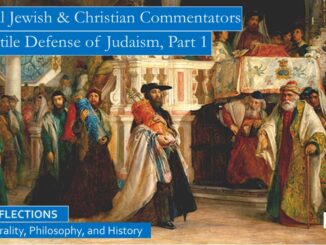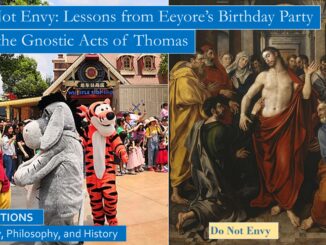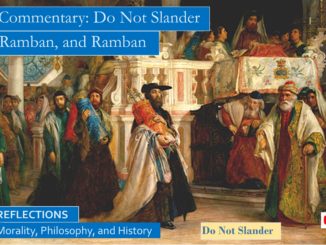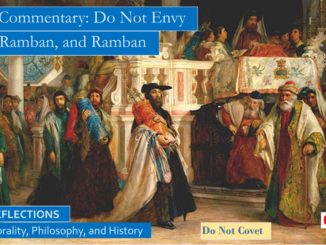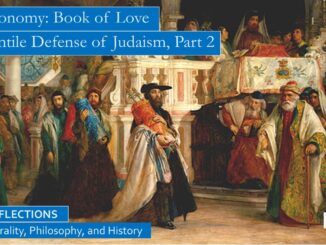
Loving God in Deuteronomy, and a Gentile’s Defense of Judaism, Part 2
When studying the rabbinical commentaries on Deuteronomy, I was struck by the number of times the commandment to Love God was repeated in various forms, including the commandment to Fear God, which is roughly equivalent, so I decided to count them, there are about twenty repetitions. This was surprising to me as a Christian, for as St Paul exhorts, “the letter” of the law “kills, but the Spirit gives life.” […]

